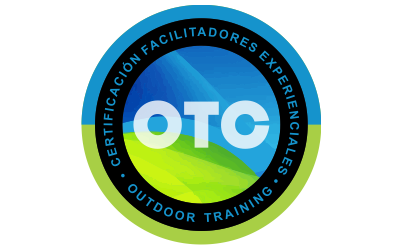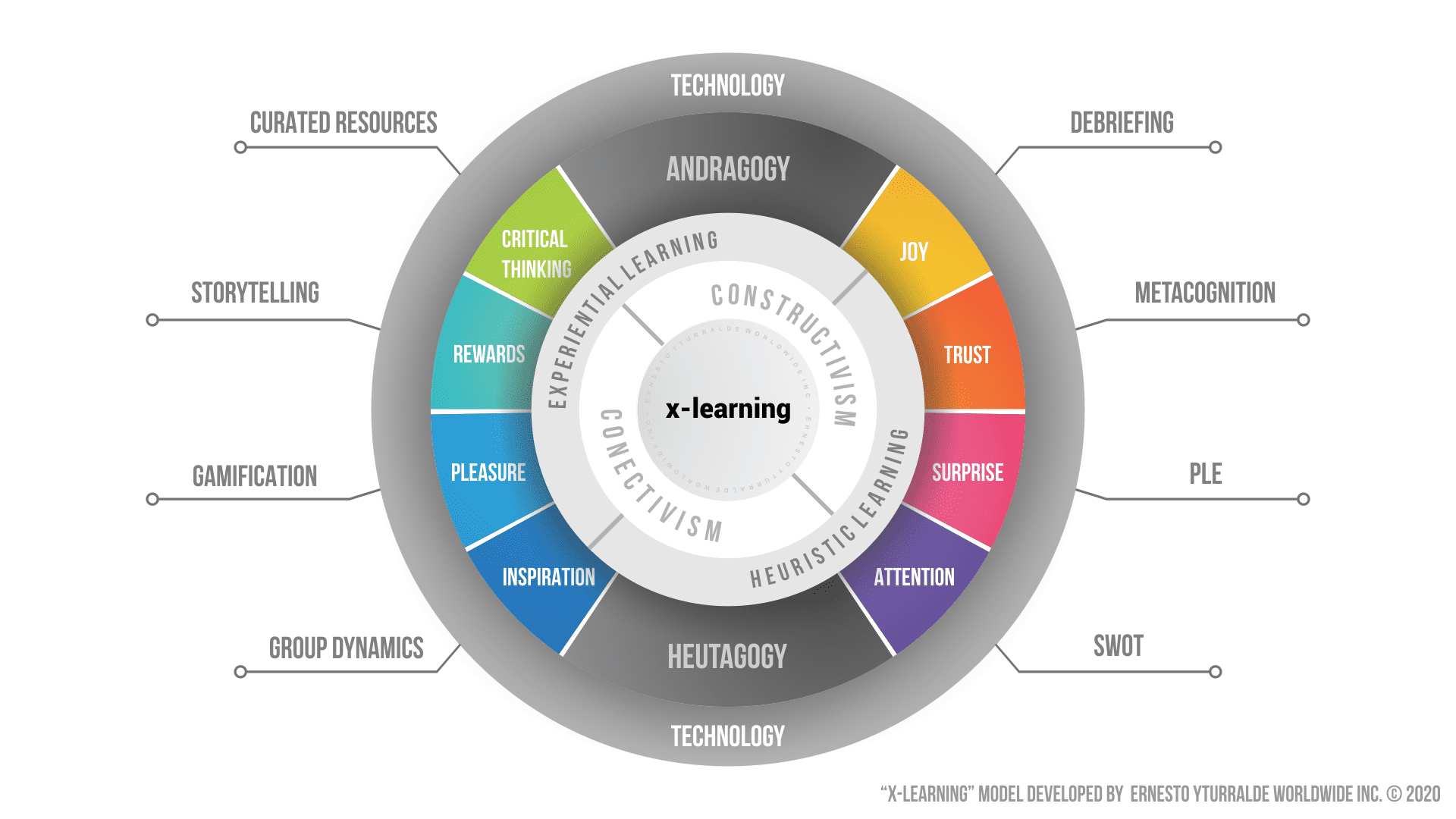
Certificación Facilitadores Experienciales


Experiential Learning, as its name suggests, is a methodology in which, during the teaching-learning process, the participant, who from now on we will call an apprentice, learns and develops their capacities through experience.
The experience in simulation is connected to analogies and metaphors, and is led to reflection so that this learning is internalized. The ages of the apprentices suppose a different approach within the Andragogy which is the discipline in charge of adult education, Hebegogy when it is directed at young people.
Learning can take place personally from a conscious process or it can take place in groups with the intervention of Facilitators through experiential workshops for the development of soft skills (SP) and hard skills or technical (SP) .
The workshops must be designed and structured by the Facilitator or Consultant, based on the training needs (TNA) and focused on the learners based on the training objectives to be achieved, in accordance with the objectives and profiles of the learners. The training processes are focused on the learning objectives and the contents are adjusted to the objectives, contrary to the traditional approach to education that is strictly oriented to the development of content in a passive way.
According to David Kolb , Experiential Learning can be defined as "the process by which knowledge is created through the transformation of experience. Knowledge results from the combination of capturing and transforming the experience ". At this stage, the mastery of the Facilitator to apply the Debriefing technique is essential.
The Debriefing is the technique we use to generate the processing of the facts, emotions to lead them to reflections, and from the reflections, generate life learning and then, action commitments.
In our organization we work the processes with the Learning Cycles of David Kolb and Kurt Hahn , with the development of our proposal Debriefing Model of the 4 Elements .
Experiential Learning methodology is often confused with conducting the Group Dynamics technique, in person or online. Group dynamics represent a great resource for learning, integrating play in the process, however, if the activities are present in the program as devices disconnected from the objectives, they fail to generate learning. The Facilitator must resort to Debriefing , technically well structured, to achieve the learning. Group Dynamics are not equivalent to generating learning.
The success of experiential methodology, in face-to-face settings, has shown that learning is more effective when it is acquired through experiences and by discovery from the Constructivism approach and currently with a trend towards recent Connectivism , learning theory that arises in the digital age as contributions from Siemens and Downes .
x-learning is a process model adapted to e-learning processes such as b-learning (blended learning), based on Experiential Learning . x-learning is a model to enhance the PEA (teaching-learning processes) , applicable to training programs adapted to virtual environments, maintaining the high impact of the magic and the power of Experiential Learning , Debriefing , ICT , Heuristic Learning , Metacognition , stimulating the creation of a PLE (Personal Learning Environment) , incorporating principles of Andragogy, Paragogy, Heutagogy , and generating based on Constructivism and Connectivism , memorable experiences for Meaningful Learning , applied in our corporate programs, workshops, courses, as well as in the training of online trainers and certification of facilitators in face-to-face workshops.

The key characteristics of Experiential Learning face-to-face and x-learning , we summarize them in the following points:
“Experiential Learning as the cyclical generation of action theories, based on internalized experiences.”
Experiential Learning brings with it numerous benefits aimed at making learners reflect on their own learning. Between these:
In addition to the workshops applying x-learning , we facilitate co-creation workshops to detonate the collective intelligence that exponentially stimulates ideas to co-create the future. Collective intelligence shows us that together we are smarter than any person from their individuality. These spaces are ideal for discussing the issues that matter to us within the organization in order to find solutions and create new horizons. All of this will allow us to get ideas pregnant © that will be created from the DNA of the organization . We have two methods for these spaces, the Open Space Workshops ( Harrison Owen ) and the World Café Workshops ( Juanita Brown & Davis Isaacs ). Two techniques that are great and effective!
We consider that education and training are organized and systematic processes by which people obtain knowledge, aptitudes, and abilities based on defined objectives, and should not be considered as isolated "events", but rather must be structured within a Training Plan ; We consider the TNA process and the ROI in training to be important. We celebrate 38 years of experience in this exciting field of Organizational Development and the development of Human Talent . We are at your service with the same passion of our first day of work and the experience of the last, today!
« For dreams, we sigh; for the goals, we perspire; for the achievements, we breathe. »
If you are a Corporate Leader and you want to develop the Human Talent of your organization, contact us to coordinate a meeting and find out your requirements. Below is the link to access Our Portfolio and the button to contact us by WhatsApp:
Our Portfolio - WhatsappIf you are Consultant or Facilitator and you need to further strengthen your skills and competencies as a leader of teaching-learning processes, contact us to guide you on how to participate in an upcoming online or face-to-face process in Spanish.
TTT Training The Trainer (SP) - WhatsappIf you are LATAM Head of the Training or Talent Retention Area , contact us to coordinate a meeting and offer solutions in the development of Corporate Facilitators in your organization.
Corporate Trainers - Whatsapp